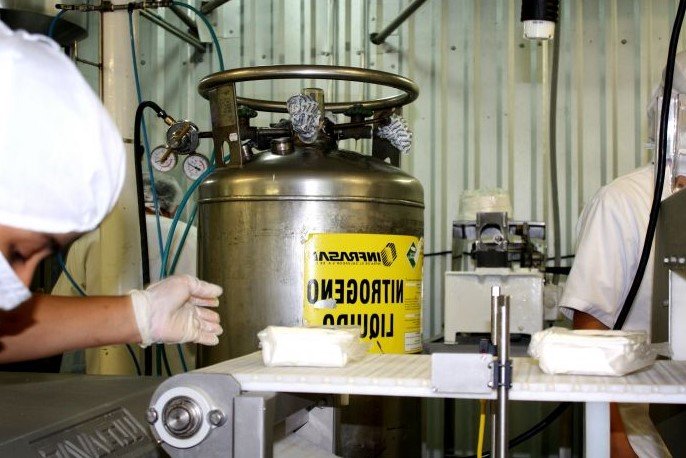Israel is set to introduce a groundbreaking dairy alternative as food tech startup Remilk partners with Gad Dairies to launch lab-made milk that mimics real dairy without using cows. This new product, called The New Milk, hits cafes and restaurants in the coming days, with supermarket sales starting in early 2026, offering consumers a lactose-free option that tastes and works just like traditional milk.
This move comes amid growing demand for sustainable and health-focused food options in Israel and beyond. Remilk uses advanced fermentation methods to create milk proteins identical to those from cows, marking a big step in food innovation.
Partnership Drives Innovation
Remilk, known for its work in cultured dairy, joined forces with Gad Dairies, a top Israeli dairy brand, to bring this product to market. The collaboration aims to blend tradition with modern tech, producing milk through precision fermentation.

This process involves yeast and microbes that generate real dairy proteins without farms or animals. The result is a product free from common dairy drawbacks like lactose and cholesterol.
Gad Dairies handles production and distribution, ensuring wide availability. The launch follows years of development and regulatory approvals, including a green light from Israeli health officials in 2023.
Experts see this as part of Israel’s push in food tech, where startups lead in alternatives to animal products. Recent events, like the 2025 global rise in plant-based foods, highlight the timing of this release.
How the Technology Works
Precision fermentation lies at the heart of Remilk’s method. Scientists insert milk protein genes into yeast cells, which then produce the proteins in large tanks, much like brewing beer.
This approach cuts down on resources compared to traditional farming. It uses far less water, land, and feed, making it kinder to the planet.
The final product mixes these proteins with water, fats, and vitamins to create milk that foams, curdles, and tastes like the real thing. Remilk claims it’s chemically identical to cow’s milk but without the downsides.
In tests, users report no difference in coffee or baking. This tech builds on earlier innovations, such as lab-grown meat approvals in various countries over the past few years.
Unlike plant-based milks from soy or almonds, this version offers the full nutritional profile of dairy, including proteins that support muscle health.
Key Benefits for Consumers
The New Milk stands out for its health and environmental perks. It’s certified kosher-pareve, appealing to a wide audience in Israel.
Here are some standout features:
- No lactose, making it suitable for those with intolerances.
- Zero cholesterol, which supports heart health.
- Free of antibiotics and hormones often found in conventional dairy.
- Lower sugar content, with about 75% less than regular milk.
On the eco side, production requires 10 times less water and 20 times faster output than traditional methods. This aligns with global efforts to reduce farming’s carbon footprint, especially as climate reports from 2025 stress sustainable food systems.
Consumers can expect prices similar to other alternatives, around the cost of almond or oat milk, but with a more authentic dairy experience.
Market Rollout and Availability
The rollout begins with a barista version for cafes and hotels, perfect for lattes and cappuccinos. This phase lets people try it in everyday settings.
By early 2026, supermarket shelves will stock 3% fat milk and vanilla-flavored options. More varieties, like chocolate or low-fat, are in the works.
Remilk is also eyeing the US market, with talks underway for expansion. This follows their 2023 regulatory win in Israel, paving the way for broader sales.
In comparison, other Israeli firms like Strauss Group launched similar cow-free products in September 2025, using whey protein tech. This competition shows a booming sector, with sales of dairy alternatives up 15% globally this year.
| Feature | Traditional Cow’s Milk | The New Milk |
|---|---|---|
| Source | From cows on farms | Lab fermentation |
| Lactose | Present | None |
| Cholesterol | Present | None |
| Production Time | Weeks to months | Days |
| Environmental Impact | High water and land use | Low resource needs |
| Taste and Texture | Creamy and versatile | Identical to dairy |
Challenges and Future Outlook
While exciting, lab-made milk faces hurdles like consumer acceptance. Some view it as a “science experiment,” but supporters praise it as the future of dairy.
Regulations in other countries vary, slowing global growth. Yet, with Israel’s food tech hub status, Remilk could lead the way.
Looking ahead, experts predict more innovations, such as lab-grown cheeses or yogurts. This ties into 2025 trends where sustainable foods gained traction amid rising grocery costs.
As climate concerns grow, products like this offer practical solutions for everyday eating.
What do you think about trying cow-free milk? Share your thoughts in the comments and spread the word to friends who might be interested.
